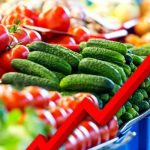After more than 15 years of attempts to achieve self-sufficiency in sugar production, Nigeria’s dependence on imports has sharply increased, exposing the failure of the National Sugar Master Plan (NSMP) introduced in 2010. Data from the National Bureau of Statistics shows that the value of sugar and sugarcane imports rose by 328 percent between 2020 and 2024, reaching N2.21 trillion compared to N516.61 billion in the preceding five years.
The NSMP was designed to eliminate sugar imports by 2020 through a Backward Integration Programme that required companies importing sugar to invest in local production. Targets included building 28 sugar factories, cultivating 250,000 hectares of sugarcane, and ending sugar import licensing. Private investors such as Dangote Sugar, BUA Foods, and Flour Mills of Nigeria were attracted to the sector, with a combined refining capacity of 3.5 million metric tonnes annually.
Despite this, Nigeria’s production has stagnated at 40,000 metric tonnes per year—barely an improvement from 30,000 tonnes in 2010—leaving a 97 percent supply deficit against an annual demand of 1.7 million tonnes. This mirrors the 98 percent deficit recorded when the programme began.
The Federal Government has now launched Phase II of the NSMP, targeting production of two million metric tonnes of sugar, 400 MW of electricity, and 110,000 jobs. The plan requires up to 250,000 hectares of suitable land and an estimated \$3.5 billion in investment. A new monitoring framework has been promised to ensure accountability and track progress.
However, smallholder sugarcane farmers say they have been left out of the policy framework. Farmers in Kaduna State and along the Abuja–Kaduna road told *Financial Vanguard* that they receive no government support, lack access to improved seedlings, pesticides, and structured markets, and are often forced to sell to middlemen at low prices.
One farmer explained that he sells bunches of 20 canes for between N8,000 and N10,000 depending on size, while another sells bundles for N4,000 during harvest, often at a loss. Many farmers remain unaware of better-yielding varieties and plant traditional stems, reducing productivity.
Agribusiness operators argue that with proper funding, training, and direct market access, Nigeria could not only meet its domestic demand but also become a net exporter. The CEO of DeBranch Farmers Limited in Kaduna said the country’s vast network of smallholder producers has untapped potential, but without deliberate government action to integrate them into the value chain, the industry will continue to rely on imports.










